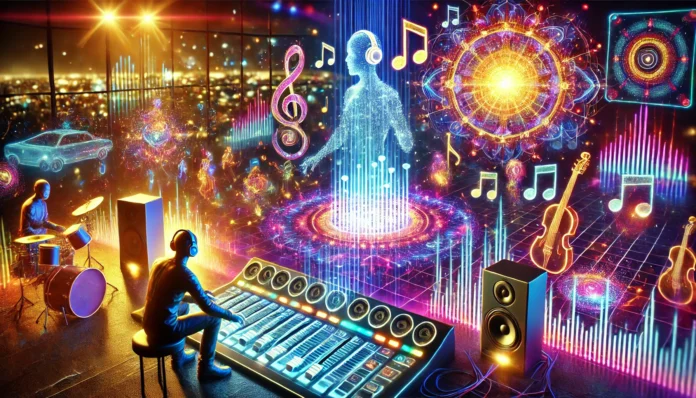The music industry, long driven by human creativity, is undergoing a seismic transformation with the advent of AI-generated music. From composing melodies to mastering tracks, artificial intelligence is pushing the boundaries of what is possible in sound creation and production. As machine learning algorithms become more sophisticated, they are revolutionizing how music is made, consumed, and appreciated, raising profound questions about creativity, ownership, and the future of the art form.
How AI Creates Music
AI-generated music relies on deep learning algorithms trained on vast datasets of songs, genres, and styles. These algorithms learn patterns, chord progressions, rhythms, and melodies to generate original compositions. Key technologies enabling this innovation include:
- Generative Adversarial Networks (GANs): GANs produce unique music by pitting two neural networks against each other—one generates music, and the other critiques it, refining the output iteratively.
- Example: OpenAI’s MuseNet can compose in the style of Bach, Beethoven, or modern pop artists.
- Recurrent Neural Networks (RNNs): RNNs, such as those used in Google’s Magenta, focus on time-sequenced data, making them ideal for generating coherent melodies over time.
- Audio Synthesis Tools: AI synthesizers like Amper Music allow users to create custom soundtracks by adjusting parameters such as mood, tempo, and instrumentation.
Applications of AI-Generated Music
- Film and Gaming Soundtracks: AI tools create adaptive soundtracks that respond to on-screen action or player decisions in real-time, enhancing immersion.
- Example: AIVA (Artificial Intelligence Virtual Artist) composes orchestral scores for films, ads, and video games.
- Personalized Playlists: AI algorithms curate music based on individual preferences, moods, and activities, offering hyper-personalized listening experiences.
- Example: Spotify’s AI-driven Discover Weekly playlist introduces users to new music tailored to their tastes.
- Music Education: AI tools help aspiring musicians learn and compose by analyzing their input and suggesting improvements.
- Example: Apps like Humtap let users hum a tune that AI turns into a polished song.
- Collaborative Composition: Musicians are increasingly collaborating with AI as creative partners, using tools to brainstorm ideas or expand their sonic palettes.
Benefits of AI in Music Creation
- Efficiency: AI can produce high-quality music in a fraction of the time it takes a human composer.
- Accessibility: Aspiring musicians with little formal training can create professional-sounding tracks using AI tools.
- Cost-Effective Production: Independent artists and small studios can generate music without hiring large teams or renting expensive studios.
- Diversity: AI can blend styles and genres in ways that challenge traditional boundaries, resulting in fresh, innovative sounds.
Challenges and Ethical Concerns
- Originality vs. Replication: Critics argue that AI-generated music lacks the emotional depth and originality inherent in human composition.
- Ownership and Copyright: Defining intellectual property rights for AI-generated music is a complex legal challenge. Who owns the music—the developer, the user, or the AI itself?
- Impact on Human Artists: As AI becomes more capable, concerns about job displacement among musicians and composers are growing.
- Cultural Implications: Over-reliance on AI may dilute cultural and personal elements that make music meaningful.
The Future of AI-Generated Music
As AI continues to evolve, its role in the music industry will likely expand:
- Hyper-Personalized Music: AI could create soundtracks that adjust dynamically to individual listeners’ heart rates, environments, or emotional states.
- Enhanced Creativity: Collaborative AI tools may unlock new levels of artistic expression for human musicians.
- AI-Generated Superstars: Virtual artists, entirely created and managed by AI, could dominate music charts.
- Democratization of Music Production: AI’s accessibility could lead to a surge of new voices and styles, reshaping global music culture.
Conclusion
AI-generated music is not just a technological novelty; it is a disruptive force reshaping the future of sound. While it may never fully replace the human touch in music, AI’s ability to enhance creativity, streamline production, and expand accessibility makes it an indispensable tool in the modern musician’s toolkit. As we embrace this new era, the challenge lies in balancing innovation with the soulful essence that makes music timeless.





